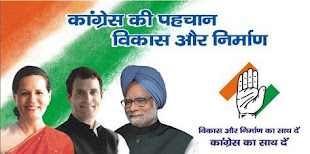Dr. Sheetal Kapoor
As we celebrate the World Consumer Rights Day 2011 on March 15th the Consumers International which represents 220 consumer organisations in 115 countries has this year proposed to safeguard consumer interests and put this agenda in G20 Summit. Consumers International (CI), with its members around the world, is calling for concrete action from international decision-makers to strengthen financial consumer protection and to demand access to safe, fair and competitive markets in financial services for all. Thus, “Consumers for Fair Financial Services” is a global campaign to increase consumers' access to stable, fair and competitive financial markets.
The World Consumer Rights Day, which was first observed in 1983, is celebrated on March 15 every year and the need for consumer satisfaction and consumer protection has been recognized. Consumers today want value for money, a product or service that would meet reasonable expectations, is safe in use and there is full disclosure of the product specification. These expectations are termed as ‘Consumer Rights’. As proposed by the Ministry of Consumer Affairs in India consumers should be on a constant vigil to safeguard their financial investments and spend prudently to stop falling in a debt trap. New technologies, such as the internet, debit cards, credit cards, ATM’s on one hand are making the life of the consumer easier, but again pose a challenge of safety and security. As consumers we need to separate the chaff from the grains.
The Indian financial market has increased manifold and several services such as investment services, mutual funds, car, home and personal loans, credit cards, equity market, mobile banking, insurance, etc. are available and customers have multiple choices to choose from. However, it is a pity that the consumers fall in trap of financial companies and lose their hard earned money.
Exploitation of Consumers
Moreover, financial risks are involved where the consumers may not get the value for money spent or they may be overcharged or there may be hidden price components which may leave them exploited. Instances abound where a claim on an Insurance Policy takes an unduly long time to be settled, or there may be over-billing, double debit, billing delays, pension disbursement, non-rectification of wrong bills, misleading advertisements and non-adherence to offers made. Cases of wrongful dishonor of cheques, loss of cheques that have been deposited in a bank, cheques with forged signatures, etc. are not rare. Instances abound where companies advertise lucrative schemes offering attractive rates of return or make offer for doubling of money in a short period of time, and, after having collected funds, have shut shops and vanished. Consumers also face innumerable problems with credit card companies. The most common issue is the company demanding an annual fee despite assuring that there would be no such charges. Several written complaints later, the issue has not been sorted out and the company keeps adding interest and late payment charges on the annual fee. Consumers refute this, hold back this amount, and settle the balance payment due on the card. Eventually, consumers get vexed and surrender the card. After a year or so, the company starts sending statements and agents to collect a huge sum which is the supposed due from the consumer when actually, it is the so-called annual fee that has multiplied. The consumers are also enlisted as defaulters with the credit rating company. There are umpteen such issues where consumers are penalised and their rights flouted.
Prevention is Better than Cure
Whenever consumers take an insurance policy they should not allow agents to influence their decision of purchasing it either on phone or through direct mail. Consumers should gather all data from agent, evaluate the same independently and only then decide about its purchase. They should read the policy documents carefully before signing it and should not rely fully on the agent to fill up the entire form without having knowledge about anything. Further crossing the terms by writing "N/A" which are not applicable in one’s case always helps. According to Insurance Regulatory Development Authority (IRDA) all insurance policies have a free look period of generally 15 days from the receipt of the policy, when the policy holder can return the policy back to the company. Therefore, if you have got a wrong insurance policy it is your right to return it back to the Insurance company and ask for a fresh one. Moreover all receipts issued by the insurance company should be carefully maintained and we should pay the premium regularly and surrender our policy on time. Spouse or nominee need to be well informed about the policies taken and the procedure of filing the claim. All doubts and benefits should be clarified in writing before taking up a policy.
Credit cards offer many benefits but can become a trouble if they are used unwisely. Banks can now charge an annual interest rate up to 49 per cent from credit card customers for late payment, therefore it is advisable that all credit card payments should be made on or before in time. Consumer should insist on all the Terms & Conditions in writing in order to avoid any dispute later. There must be clarity in all aspects regarding payment terms, interest charges and fee etc levied on the Credit Card. Consumers should always keep a photocopy of the ‘Most Important Terms and Conditions’ and ‘Application Form’ filled at the time of applying of credit card. Consumer should keep the information on call center number, bank head office address, and nodal officers addresses and phone number on record to call immediately in case of lost card or any other emergency. Credit cards should never be put in office drawer or at any place, which is publicly and easily accessible. Further consumers should be careful while using credit card in Internet transactions and use portals which use adequate safeguards. Thus, well educated and empowered consumers are an asset for a country.



























0 Comments